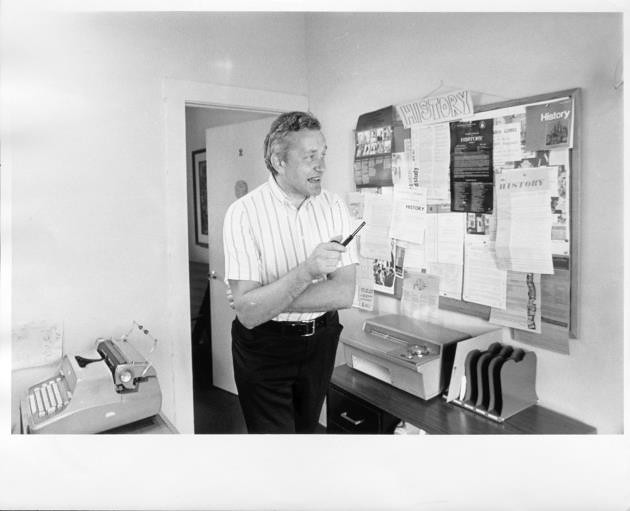
In an interview in 2000, Laszlo Deme explained to the Catalyst that he felt like an exile when arriving in the United States, but now, he is remembered as an integral part of the New College community. He was a pillar of the Division of Social Sciences and celebrated for his role as chairman of the division. Deme was a part of New College history beginning in 1966, and remained at the college for 34 years. His work as a professor of European history will be forever recognized.
“[Deme] was a part of the founding generation of faculty that really built the place and set the tone,” professor of history and current Division of Social Sciences chair, David Harvey, said.
“When he came here the school was in an extremely loose place,” Professor Emeritus of History Justus Doenecke said. “But when he came here the school became a more coherent and academic place.”
“[Deme] taught and advised generations of New College students,” Harvey said. “He had an influence in shaping the division and hiring faculty.” Deme held the position of chairman for 13 years.
Deme was born in a Hungarian village where he attended school before leaving for Budapest University. From 1951 to 1955 he studied Hungarian comparative literature. As the Hungarian Revolution began, Deme decided to leave his home country. He chose to come to the United States, since he believed he would have the most freedom in this country. He described to the Catalyst in that same interview that freedom was the “supreme good.” He went on to attend the American Language Institute of Columbia. He then enrolled in the history program and earned his master’s and his doctorate. Deme went on to work in the department of research at the New York Times. Although, in 2000, he told the Catalyst he preferred academia to the paper.
In 1962, Deme met his wife Elaine Deme shortly before taking the job as professor of European history at New College in 1966.
Although Deme had many scholarly achievements, the creation of a conference on Eastern Europe history is one that stands out. The conference was historically based and attracted people from all over the globe. Even the foreign minister of Hungary, Geza Jeszemsky, made an appearance.
“He was a very generous person,” Harvey said. “He was a wonderful man and completely dedicated to New College.
Deme’s colleagues and friends were quick to note that he was always willing to stand up for the rights of both the staff and the students when he thought he could make a difference.
“He took a great deal of interest in faculty, he stood up to administrators, and he was very encouraging of scholarship and research,” Doenecke said.
“One of [his] lovable quirks was that he always referred to the students as our clients,” Harvey said. “What he meant by that is to say the students are the reason we are here – they should be our first priority.”
Deme’s commitment to New College was evident in his many years of service. He was an immigrant, a student, a teacher, a researcher and an organizer, but, most of all, he will always be remembered as an important part of New College’s history.
